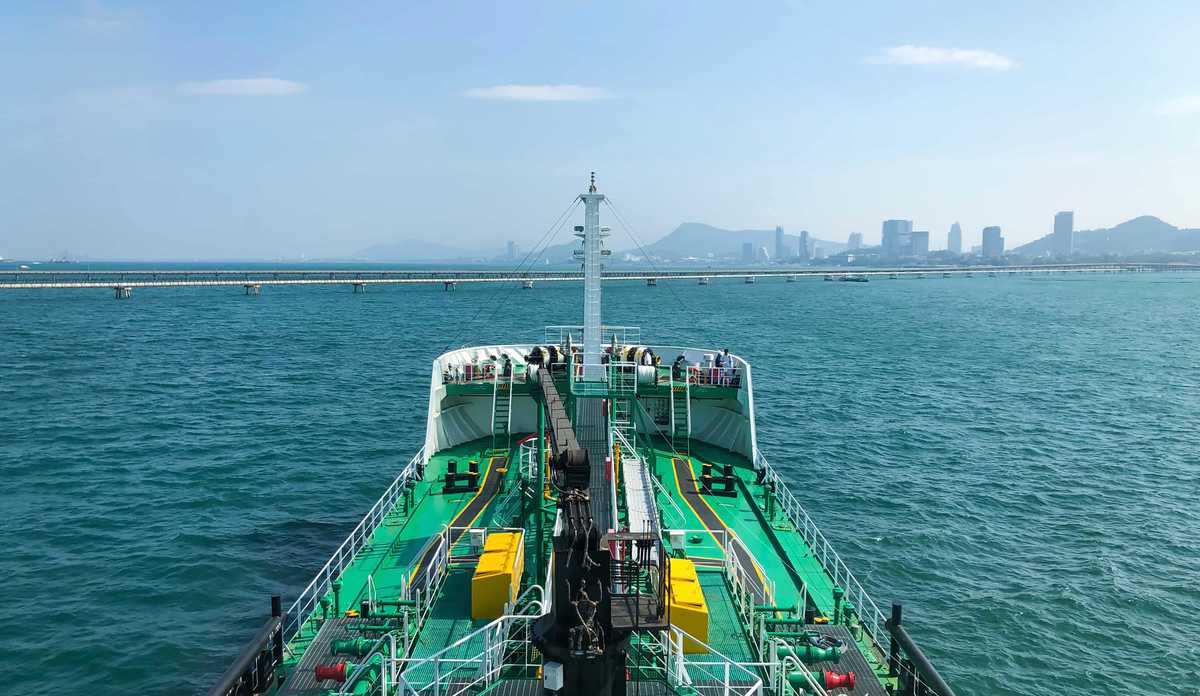Poseidon Principles-aligned shipping portfolio supports bank's net-zero by 2050 target - Swedbank
Stockholm-based banking group Swedbank will focus on helping its shipping borrowers decarbonise their maritime operations to stay on a 1.5°C pathway and achieve net-zero emissions by 2050.
 PHOTO: Deck shot of an oil tanker. Getty Images
PHOTO: Deck shot of an oil tanker. Getty Images
The Nordic-Baltic lender’s exposure to the shipping sector represents 2% of its overall corporate loan portfolio, Johanna Fager Wettergren, head of group sustainability at Swedbank told ENGINE.
The bank will measure and report its progress in accordance with the Poseidon Principles framework from this year onwards, she confirmed.
The Poseidon Principles aim to reduce the carbon footprint of the shipping industry by providing a framework for banks and other financial institutions to assess, disclose, and manage the environmental impacts of their shipping portfolios.
The shipping finance reporting adopted IMO’s 2023 greenhouse gas (GHG) strategy. It will now consider all well-to-wake greenhouse gas (GHG) emissions, as outlined in the IMO's revised ambition.
“As a significant lender to the shipping industry, Swedbank has a commitment to participate in the decarbonisation efforts of the industry, which are also required for the bank to reach its net-zero [by 2050] ambitions,” Wettergren said.
Financing the shipping sector’s green transition
A bank can usually aid shipping companies in reducing their greenhouse gas (GHG) emissions by financing the adoption and deployment of low- and zero-emission fuels and technologies and other green shipping projects.
“Net-zero fuels, technologies and energy efficiency measures are great examples of areas that we look to pinpoint,” she explained. Swedbank offers sustainability-linked loans (SLLs) and green loans to its shipping customers seeking investments in these areas.
Sustainability-linked loans (SLLs) are loans linked to the borrower's performance in achieving sustainability targets. For example, Swedbank will adjust the interest rate on its SLLs based on the borrower's success in reducing GHG emissions and meeting IMO’s emission-reduction goals.
Green loans are financial products specifically designed for the financing of green projects, such as renewable energy, energy efficiency and zero-emission transportation. Green loan proceeds must be used only for “green projects.” Green loans typically have lower interest rates and longer repayment periods than traditional loans.
Proceeds from SLLs can be used for general corporate operations, but green loan proceeds can only be used to develop green projects.
Both financing options are designed to incentivise the reduction of shipping’s GHG emissions and help the industry reach its climate goals, Wettergren concluded.
By Konica Bhatt
Please get in touch with comments or additional info to news@engine.online






